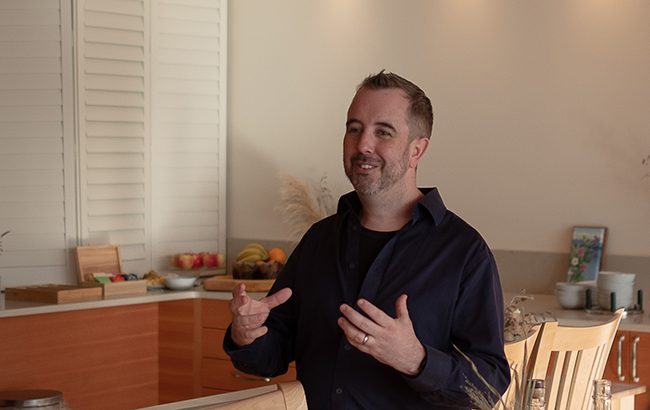Kieran Healey-Ryder calls for ‘more inclusive’ spirits sector
By Lauren BowesOn the eve of his appointment as chairperson of the Scottish Alcohol Industry Partnership (SAIP), Kieran Healey-Ryder spoke to The Spirits Business about the organisation and his hopes for the role.

Healey-Ryder is the global head of communication for Scotch whisky producer Whyte & Mackay.
SAIP is an alliance between the nation’s distillers, brewers, retailers, hospitality venues and trade bodies.
Some of its recent campaigns include ‘It’ll Cost You’, a collaboration between Police Scotland, local authorities and alcohol companies to educate about the consequences of buying alcohol for minors, and a social media campaign highlighting Covid-19 safety measures in the on-trade.
Speaking on the eve of his appointment, Healey-Ryder explained the importance of uniting the industry: “Within alcohol, traditionally, the sector has been quite segmented. We always talk from a sales perspective about the on-trade, the off-trade, e-commerce and wholesale, but it’s also segmented by people producing different types of alcohol.
“I live in Glasgow, and we very proudly produced Tennent’s [beer], and we also very proudly produce Whyte & Mackay. Some of the challenges that face those two businesses – despite them producing different things – are similar. And, as always, within the broader world, there is more in common than there is that divides us.”
He added that in recent years, with the advent of Covid-19, there has been a greater need for the industry to respond as a whole: “There have been significant challenges that have made that so but, actually, it’s an opportunity. We are more connected now than ever.”
The positive impact
Healey-Ryder explained that the SAIP’s main two focuses are addressing harmful drinking and promoting the responsible enjoyment of alcohol, and that he is particularly interested in the “untold story of the positive impact that the alcohol industry makes”.
“My first job out of university was on a tiny, island called Scalpay, which is connected by causeway to Harris. At the time, it had 40 residents.
“[Isle of] Harris Distillery has just launched its first whisky – The Hearach – after the success of its gin. Harris – where I first started out, which had nothing in that space 20 years ago – is now proudly promoting two brands from that one distillery.
“There are [other] parts of Scotland now, of about that size, that have just opened a distillery – whether it’s gin or whisky – or they’ve just opened a community interest pub, or they’ve got a community shop that’s owned by a development trust.
“There are many, many rural communities where the alcohol industry is the beating heart of the community, from an employment perspective and, therefore, from a social perspective. Equally, products made in Scotland – Arran Aromatics, Harris Tweed – these are synonymous with the place and people that make them. These brands put these places on the map. So, for me, there’s an untold story about the positive impact we make.”
He added that these positive stories aren’t only coming from rural communities, highlighting the impact that brewer Innis & Gunn and Scottish spirits firm Ian Macleod Distillers have had on Edinburgh, with recent investment in facilities and visitor services.
He also cited a recent celebration for the 60th anniversary of Jura, held on the island by Whyte & Mackay, as an example of the positive impact that spirits brands can make. “It was primarily for the community… It was a celebration around that distillery for the 212 islanders.”
A better future for the spirits industry
When asked where he thinks the spirits industry needs to improve, Healey-Ryder said that diversity and inclusion remain key issues. “The alcohol industry in Scotland, and in the rest of the UK, has yet to truly embrace diversity in a way that other consumer goods categories do.
“As a gay father of two, one of the things I’m really proud of is that Whyte & Mackay is positioning itself as a company that takes diversity seriously.
“I’m also really proud to see other producers look at how they address diversity – not least Diageo, who invited me to their Pride celebration as part of Edinburgh Pride.”
He added that there are a number of influential individuals championing diversity in the spirits industry, such as Aidy Smith, Becky Paskin, Millie Milliken, Kristiane Sherry and the Glassmates, as well as in the wider drinks industry.
“There are a number of different dimensions to diversity. That’s really important to bear in mind, as there are many communities to consider – be that gender, deaf and hard of hearing, blind and partially sighted people, from different economic backgrounds – all of those are important aspects of diversity.
“In the past 12 months, Marketing Society Scotland has done incredible work to push that forward, as too has the Unlocked programme, which offers internships to underrepresented communities, and Fuel Change, which is a social movement to tackle sustainability, but by no accident is broadening access to careers in alcohol through its programmes.”
As for the future, he hopes the spirits industry will look like “a more inclusive community, with a diversity of people in every function – an industry at home that looks more like the consumers that are enjoying our products around the world.
“That, for me, is really important. It’s not within the brief of the SAIP. But it is something that all of the producers are taking seriously and we are starting to see the early signs of real change in that space.”
Related news
Scottish groups demand urgent rates relief for hospitality
